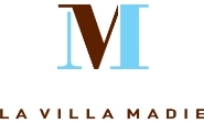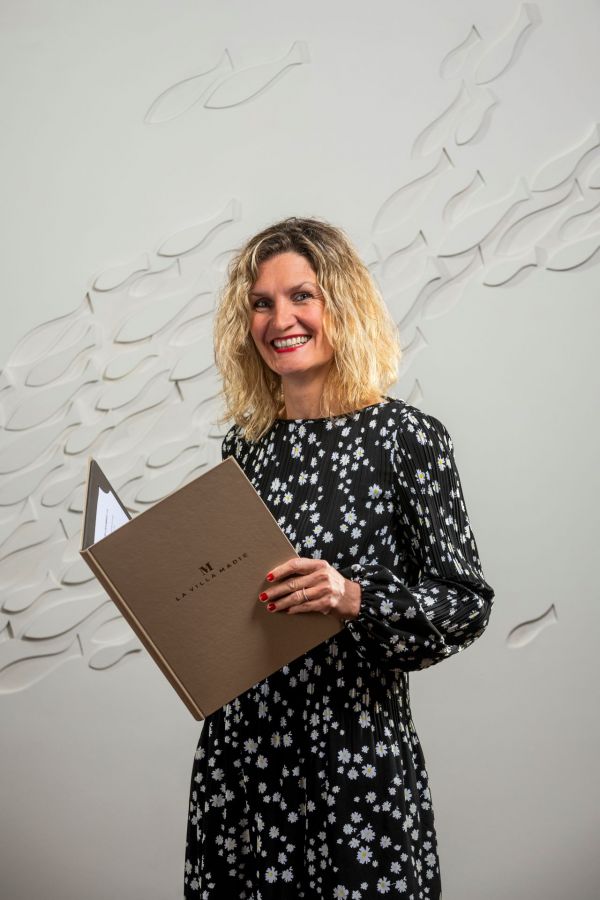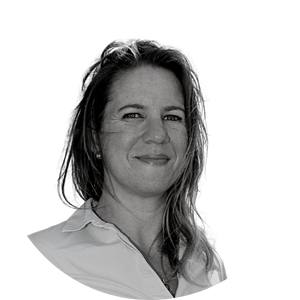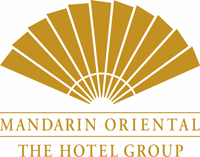
INTERVIEW - MARIELLE DROISNEAU, OWNER OF THE 3* VILLA MADIE RESTAURANT IN CASSIS: “THE KEY FACTOR IS TO BE IN HARMONY WITH THE PLACE” (France)
“In the dining room, a great deal of rigour is required, and the contact with the guest, the team spirit, the opportunity to share a moment of life with the people you are hosting, appealed to me”. |
 |
INTERVIEW - MARIELLE DROISNEAU, OWNER OF THE 3* VILLA MADIE RESTAURANT IN CASSIS: “THE KEY FACTOR IS TO BE IN HARMONY WITH THE PLACE” (France)
“In the dining room, a great deal of rigour is required, and the contact with the guest, the team spirit, the opportunity to share a moment of life with the people you are hosting, appealed to me”. |
Category: Europe - France - Interviews and portraits
- Gourmet restaurants
- Gourmet restaurants - Interviews
Interview made by Vanessa Guerrier-Buisine on 2023-06-02
 Villa Madie in Cassis, France, run by Marielle and Dimitri Droisneau
Photo credit © Evan De Sousa / La Villa Madie
This three-star Michelin restaurant was founded by a couple in 2013. A duo made up of Dimitri, Marielle's husband, as chef, and Marielle, in the dining room, who have created a place that is timeless, comforting, and exotic.
Here, the guests are warmly welcomed by the lady of the house and her team. Eyes plunged towards the Mediterranean or subjugated by their dishes, the guests let themselves be carried away by the twirling Marielle. An energy that she dedicates on a daily basis to her restaurant, her teams, and her guests.
We met her to find out more about the background and vision of this generous woman who works to serve others.Journal des Palaces: Could you describe your background?I went to the Sacré-Coeur hotel school, in Saint-Chély-d'Apcher, in Lozère, where I completed a baccalaureate and a BTS. I started with two internships with the Bras family, in Laguiole (at the 2* Bras restaurant), which was practically a must for me as I am from Aveyron. There I discovered the Bras spirit with this family atmosphere, around Michel and Ginette Bras, then Sébastien and Véronique. I then wanted to discover another house, Michel Guérard's Les Prés d'Eugénie 3*, a family business with the history of a group. Another experience, a more structured, more conventional, more traditional service, with service under a bell, cutting, a different art of the table.
After a year at Les Prés d'Eugénie, I did a stint at Marc Veyrat's in Annecy, then in Megève. I then tried to work in Paris, but at the time, it was complicated, women were very rarely accepted in the dining room, some restaurants did not accept any female employees at all. The world in the dining room was very male, especially in Paris. Furthermore, I needed to improve my English, so I went to England, then to Spain to work for the 3* chef Martín Berasategui. We heard a lot about him. He was a chef who interested me. Once again, it's the story of a couple.
After all these experiences, I wanted to settle down. I was attracted to the South, so it was the Réserve de Beaulieu. I spent eight years there and met Dimitri. I also discovered the world of the “palace”, but the “palace” in the service, with a very structured, organised service, but at the same time, a close relationship with the guest.How did you open Villa Madie?In 2006, we had a short interlude in Saint Barth. On our return to France, we had this desire to undertake. One day, Arnaud Donckele (3* chef at Hotel Cheval Blanc Saint-Tropez), advised us to visit this house in Cassis. When we arrived at Villa Madie, Dimitri and I looked at each other, and it was obvious that this was the place. We fell in love with the house, but also because it was going to be our restaurant, our place of life, our universe.
We wanted to be the captains, to make our own decisions. Furthermore, we both had different but complementary backgrounds. So, we developed this house, we gave it a soul. The third star was the reward for all this work, but we are constantly questioning ourselves. In addition, our team follows us and is part of this dynamic.You have mainly worked in houses run by couples. What difference does that make?I like these houses where there is a story behind them, with complementary people. I've worked in houses where it's always a war between the kitchen and the service. But when those two worlds are in symbiosis, it works because one complements the other.
Dimitri often says, “I can cook the best food in the world, if no one knows how to explain it and serve it properly, and get that message across, it won't get through”.
Looking back, it's true that these stories must have inspired me unconsciously. It's important because the experience is a whole.How did your passion for the profession come about?When I went to hotel school, I rather liked pastry-making, for its mathematical, hyper-precise side. It was an internship in the dining room that went very well that directed me towards the dining room.
In the dining room, there is a lot of rigour, and the contact with the guest, the team spirit, the fact of sharing a moment of life with the people we receive, attracted me. Somehow, we participate in creating a moment of happiness.
Nowadays, it's even more present, when people come to the restaurant, it's a parenthesis, and we participate in this parenthesis.
It's a job that we do out of passion because we love it, we enjoy it, and we also want to give pleasure.How did you achieve excellence in your profession?I have experienced different types of service. I loved doing ceremonial services, with bells, cutting up the duck, etc. But when we arrived at the Villa, I was very happy to be able to do it. But when we arrived at the Villa, we realised that the key factor is to be in harmony with the place.
Here, we can't do a cloistered service, it doesn't work, it doesn't match the place.
The kitchen has been lightened, with less butter and cream, and the service has also had to be lightened over time. We can't have as heavy a service as before. This does not take away the professionalism, with respect for the rules.
We are therefore in tune with the place, with Dimitri's cooking, and this is what our guests come to look for; this somewhat relaxed side.
When Dimitri and I were young, we went to eat in a three-star restaurant, and he had to put on a tie, out of obligation, even though he was already in a suit. This made him feel uncomfortable. He told me that when we have a restaurant, we wouldn't impose this on people, they have to be comfortable while eating.
So, of course, we can't go from one extreme to the other, but it's all lightened up a bit. We don't impose a tie or a jacket, but guests can't come in shorts either.
What is certain is that to achieve excellence, you have to want to please.You define yourself as an “innkeeper”, but how would you define luxury service?Luxury is when you manage to give people precious moments of life. And it doesn't necessarily have to be about money. Of course, you need a whole set of rules and protocols, a whole organisation, but it goes beyond the glitter and glitz.
It's a moment of life that we manage to block out, these are parentheses that make the memories unforgettable. These are unique moments that we manage to give to people, with what they want at that moment.In your opinion, what are the main challenges and opportunities facing the haute cuisine sector?The challenge has been reversed over time. Before, we were trying to attract and retain our guests, now we are trying to find out how to get enough staff to satisfy our guests.
That's the challenge, to set up an organisation in your restaurant, to be able to attract employees, make them understand the spirit of the house, and, once they have understood all that, to keep them loyal, etc.Beyond the plate, what are your keys to building customer loyalty in your restaurant?We have many regulars at Villa Madie. This has happened naturally. The people who come here are hooked on what we offer, on our philosophy, on the cuisine.
We operate with 2 menus that change almost continuously. Not everything changes, but they evolve with the season. We make different menus for our regulars, we adapt things, we add little touches.
And there is also this bond, a bit of friendship, that is created. We know the family, we know their habits, we know what goes well, what doesn't, why they come. This is true for us, and also for our team. Some of them go to play tennis with guests.Could you name a few professional encounters that have marked your career?I could mention all the great chefs I've worked with, and of course Michel Bras.
I would also mention Mr Roger Heyd, who was the restaurant manager at La Réserve. He taught me a lot, and left his mark on me.Would a guest have made an impression on you too?We have many guests that we get along with. But one of them has followed us since La Réserve. He was even involved in some of the decisions we had to make at the beginning. Now he comes to eat at the house.
That's a bit of a challenge, which is also what I love. When we took over the house, guests who were there before were waiting for us. They came in very hard and in the end we managed, with the service and the cooking, to win them over.What is your favourite time of year in your restaurant? What are the reasons for this?I like the after-summer season, when we return to a little more calm, when we can still enjoy the terrace where it is a little less hot. It's very pleasant, the light in the restaurant is different. Things are settled, we've spent the summer, so everyone has found their place.
And then it's another atmosphere, another mood. When they are on the terrace, the guests are somehow more relaxed, thanks to the view.
In winter, the guests are inside, and when it's dark, they are more focused on their food. The seasons offer different atmospheres and experiences.What advice would you give to a young person who wants to work in the haute gastronomy sector?Beyond the job, look a lot. Look at what's going on. Mr Roger Heyd gave me that advice at the Reserve. He told me: “by watching, you will see, you will learn a lot about what is going on, about the people”.
The simple fact of watching allows you to learn a lot about how the guests are, what their reactions are, whether they feel good or not, whether they like it or not.
 Marielle and Dimitri Droisneau, owners of Villa Madie in Cassis, France
Photo credit © Evan De Sousa / La Villa Madie
 Marielle Droisneau at the Villa Madie in Cassis, France
Photo credit © Evan De Sousa / La Villa Madie
|
|






